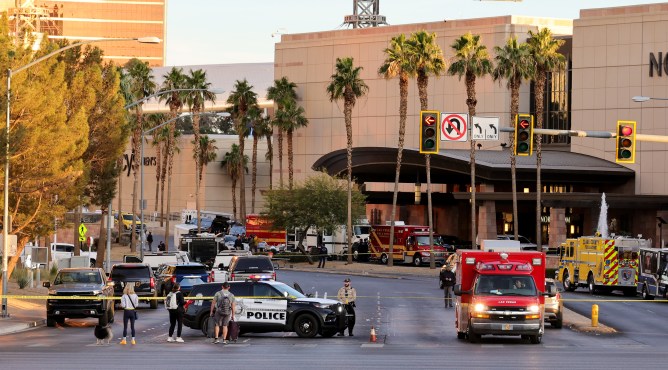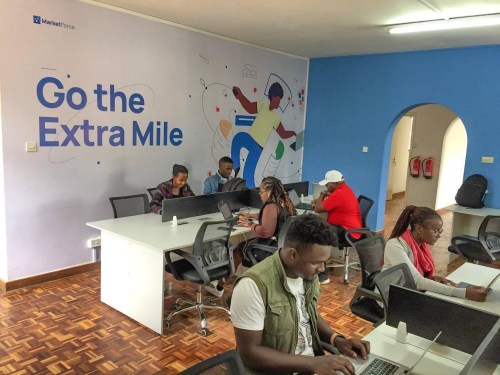In a shocking and disturbing turn of events, two individuals rented cars from the peer-to-peer car-sharing platform Turo, using them to commit acts of violence earlier this week. The incidents, which occurred in New Orleans and Las Vegas, have left many wondering how such heinous crimes could be carried out through a platform that prides itself on being a safe and trusted space for users.
The Incidents
On Monday, a military veteran driving a Ford F-150 Lightning was involved in a tragic incident where at least 15 people were killed. The driver’s motivations for the act are still unknown, but it has been reported that they had valid identification and no prior criminal record.
Just two days later, an active-duty Green Beret rented a Tesla Cybertruck from Turo and allegedly blew it up in front of the Trump International Hotel in Las Vegas. The incident was tragic, with one death reported as a result of the explosion.
Turo’s Response
In a statement released on Friday, Turo’s CEO, Andre Haddad, expressed his outrage at the incidents and acknowledged that the platform had failed to prevent them. He noted that Turo is working around the clock to determine how such crimes could occur through their platform and to take steps to prevent future incidents.
Haddad emphasized that Turo has a robust system in place to screen potential renters, including a proprietary multi-layer data-science-based trust and safety algorithm called the Turo Risk Score. The company claims to use 50 internal and external data sources to build, maintain, and improve on this score. However, it is unclear what specific measures are taken during the screening process or whether traditional background checks are conducted.
A History of Controversy
While Turo has touted its commitment to safety and security, the company has faced controversy in the past due to its lack of effective measures to prevent abuse of its platform. In the past, cars rented through Turo have been used for human and drug trafficking, and hosts have reported renting their vehicles to individuals with criminal histories.
A Difficult Question
Despite Haddad’s claims that Turo has a robust system in place to screen potential renters, it is clear that such measures are not foolproof. Even if the company’s background checks were perfect, the two perpetrators of the recent incidents had valid identification and clean records. This raises difficult questions about how Turo or any similar platform can prevent acts of violence through their services.
What’s Next for Turo?
In response to these incidents, Haddad has announced that Turo will be investing in improving its risk score algorithm and assembling a team of former law enforcement professionals to help assess future risk. The company is also consulting with national security and counterterrorism experts to learn more about how to prevent similar incidents from occurring.
While these steps are commendable, it remains to be seen whether they will be sufficient to address the underlying issues that led to the recent tragedies. As a platform that prides itself on being a trusted space for users, Turo must take concrete actions to ensure that its services are not exploited by those with malicious intentions.
A Call to Action
In light of these incidents, it is essential for the car-sharing industry as a whole to reflect on their safety and security measures. As more people turn to peer-to-peer platforms like Turo to rent cars, it is crucial that companies prioritize the safety of their users and take proactive steps to prevent abuse.
The recent tragedies serve as a stark reminder of the importance of robust screening processes and effective measures to prevent acts of violence through these platforms. It is only by working together that we can ensure that such incidents do not happen again in the future.
Turo’s Safety Measures
According to Turo, their safety measures include:
- Multi-layered data-science-based trust and safety algorithm: This proprietary system uses 50 internal and external data sources to build, maintain, and improve on the Turo Risk Score.
- Background checks: While not explicitly stated as a part of the screening process, it is implied that some form of background check is conducted on potential renters.
- Host verification: Hosts are verified through various means, including government-issued identification.
However, these measures have been criticized for being insufficient in preventing abuse of the platform. The recent incidents highlight the need for more effective and robust safety measures to ensure user safety.
Related Articles
- Trump’s DOT pick wants EV owners to pay to use roads
- Check out the futuristic Honda 0 SUVTC Video4 days agoLatest in TransportationSee MoreTransportationTesla to split $100M award for electric truck charging corridor in IllinoisSean O’Kane8 hours ago
- Accel doubles down on Sarla Aviation’s ambition to develop electric air taxis in IndiaJagmeet Singh1 day agoLatest in TransportationSee MoreTransportationTesla to split $100M award for electric truck charging corridor in IllinoisSean O’Kane8 hours ago



